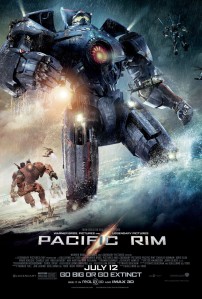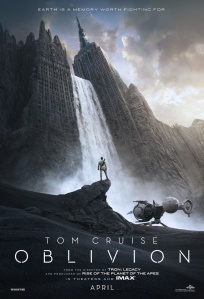I’ve got great news. Knights World has evolved.
What does this mean?
It means that this is the last post on this site. Knigths World is going down as of today.
So why is this great news?
Because my new and improved site, Knights Writes, is going live from today.
That’s right, Knights World has evolved into Knights Writes.
Now, you may be wondering, why bother changing sites? What’s the purpose of this switch?
The Features of a Successful Blog
It turns out that there are a whole heap of features necessary for a successful blog that’s just not supported on the free web hosting utility that wordpress offers.
Each one of these features are worthy of an entire article, but in a nutshell, a successful blog needs an effective landing page, calls to action, and an eye catching design that just aren’t possible with the restrictions enforced here.
So, if you’ve been following this blog, or if you’re just checking it out, then come on over to Knights Writes. I already have an all new and original short story waiting to entertain you guys. Plus, I guarantee that you will get more awesome science fiction fantasy stories and more amazing writing articles.
Hope to see you over there and thanks for reading.
-Jevon,
Knigts Writes

Image courtesy of satit_srihin at FreeDigitalPhotos.net
2014 is here and it’s time for new resolutions.
That means we’re all making promises that should make our lives better.
We go around saying things like I’m going to exercise, I’m going on a diet, I’m going to break that bad habit, and I’m going to get more writing done.
But sometime during the year, somehow, it slips away from us, and we end up breaking our resolutions (after we promised under fireworks and all). Has this ever happened to you?
Well, it’s happened to me, many times. But not this year. This year, it’s going to be different. How?
Here’s a trick I learned on how to keep my resolution.
A Little at a Time
So you want to start exercising 60 minutes a day, every day of the week, for the entire year.
Fine, that’s all good. But if you’ve never exercised a day in your life, this is very unlikely. And this doesn’t only apply to exercise. It applies to diets, breaking bad daily habits, and writing.
If you’ve never wrote more than 10 minutes for the week, then you’re not going to write 60 minutes every day.
Instead, try taking a small step. Just start exercising. Just start dieting. Just go one day without that habit. Just start writing. Do it just a bit every week. And next year, when you can proudly say I kept my resolution to do a bit every week, then you can graduate with a new resolution to do it a bit every day.
So what’s the small step I’m taking?
Well I’ve been blogging for some time now, so I’m going to try to up my game, just a little bit.
My Way Forward
If you have a novel in the works, or you’ve finished your first draft and ready to revise, then I’ve created a guide that might be right up your alley. And I’m going to give it to you, free, courtesy Knights World.
How to Turbo-Charge Your Novel to Become a Great Read will help you with tips and tricks I’ve learned around the web and from my experience writing my novel.
Simply click here, enter your email address, and it’s yours.
Another new thing I’m trying: fiction short stories.
I realise that I’ve been focusing on articles about how to write. But I’m an author first and a blogger second, so I’ve actually missed my target.
Now, if you’ve been enjoying or making use of my helpful articles about writing, then don’t worry. I’m still going to post those. I’m just including some new content.
Every month I will post a new and original short story. Just don’t get angry if I miss a month or two. You know how slippery those resolutions can be.
So subscribe for updates and you will get my guide, along with fiction short stories, and more awesome articles about writing, all for free.
What do you think? Sounds good, right? Let me know in the comments.
******************************************************************************************************************
Guest post by Sarah D. Grimm who has recently released Breathless. Sarah says, “I started writing when I was … well I actually can’t remember not writing. It’s kinda my thing. I love fantasy—epic, urban, sword and sorcery, all of it—so that’s what I write.
The way I look at it, God blesses us with talents and makes us passionate about them so we’ll use our talents. You can learn more about me and what I’m writing on my website: www.sdgrimm.com
******************************************************************************************************************
First of all, I want to thank Jevon for being gracious enough to let me post on his blog today. I am so excited about the release of my novella, BREATHLESS.
 What if one touch could unlock a thousand memories?
What if one touch could unlock a thousand memories?
Eighteen year old Claire Summers has a rare gift she must keep secret, she’s a Breather—someone who can see other people’s memories by touching an object they’ve touched. When she stumbles across a memory of her friend in danger, she’ll do anything to help rescue him. The problem is, her secret will be revealed. If the wrong people find out about her ability, they’ll hunt her because Breathers are powerful weapons.
Breathless is an urban fantasy. For those of you unfamiliar with whatever that is, it’s fantasy set in a city, sometimes it’s in the future, sometimes present.
The story takes place in a few cities—Podunk towns actually. Yup, there’s a road trip involved, and it’s in this awesome, awesome ride.
Yeah, I know.
And for your reading pleasure, here’s an excerpt:
My shoes crushed the thick grass. Thunder rumbled in the distance. Damp, summer air swirled around me unable to cut through the heavy fog. Headstones, cracked and crooked, spread across the grassy hill. I’d been here before. My dreams often brought me to this cemetery. The full moon lit my way down a familiar path. Even though I was dreaming, I was chilly in my tank top and shorts.
I headed toward the tallest headstone on the hill’s crest. No flowers or American flags decorated this soul’s final resting place. I reached out, like I had the other times I’d dreamed this, and I knew what to expect. Before I could touch the stone, my subconscious would pull me back and I’d wake on my bouncing bed feeling like I’d fallen from somewhere high.
The rough stone was cool beneath my fingers.
Three translucent figures walked away from me, passing through the untouched fog. Two men, one held a young boy’s hand, the other followed them. The boy looked so familiar. They walked through the headstones littering the hillside as if they were insubstantial, and then flickered out.
My hand jerked back. A chill skittered across my chest and spread over my whole body leaving me with goose bumps. Heart racing, I willed myself to wake.
I didn’t.
My chest tightened. Was I dreaming or not? Thunder rolled closer. I backed away from the creepy headstone and stepped on something slippery. Arms flailing, I lost my balance. I landed in the moist grass. Pain shot up my elbow as it connected with rock.
“Back here. Quick.” The whisper turned my blood to ice.
“I’m dreaming,” I said aloud since this was too freaky to be real.
“Dream? No, sweetheart, you’re in a trance. Snap out of it or whatever it is you Breathers do.” The stranger’s voice rasped.
I froze, watching him inch closer. Breather? What was he talking about? My head cleared like a fan turned on and blew the fog from my brain, and I realized my situation. I so wasn’t dreaming. This was real. This was real?
I faced the stranger hiding behind a headstone and caught a glimpse of his rifle. Oh holy night.
 They did it. I called for it, and they finally did it.
They did it. I called for it, and they finally did it.
Giant robots.
And not just two, not just three, but four giant robots.
But seriously, giant robots aside, the story behind Pacific Rim was mediocre, sometimes even predictable.
You have a pilot who lost his will to fight, another hotshot rival pilot, and a commander with an obvious secret. Throw in some uncreative events to add length, and this story only gets two and a half out of five, barely even a pass.
Yet I was hooked, and I’ll be watching this movie over and over. So what gives?
Why would I do this for a story that barely passes in quality? And is it possible for you to get readers so hooked on yours?
The Hook
Every story has a hook, something that really captures a reader’s interest and creates a desire to keep going.
It’s pretty obvious what the hook in Pacific Rim is. It’s an understatement to say that these robots are huge. They tower over buildings, even standing tall in the sea. I was in awe when I saw them rising out of the ocean, water gushing off metal limbs like a waterfall pouring from a mountain.
So how can you hook readers on your story the way Pacific Rim hooked me? No, you don’t need giant robots.
If we look at other movies that did really good, we can see that they also have interesting hooks.
Avatar has people controlling giant blue guys on a dangerous planet, Dead Man’s Chest has a ghost ship that surges out of the sea like a submarine, and the number one movie of all time, Back to the Future, has a Deloreon time-machine with tires that light on fire when the time-circuits are activated (awesome, right).
We see this happening with successful books as well.
Twilight has werewolves and vampires, and 50 Shades of Grey is filled with BDSM.
But while these hooks are enough to capture the interest of fanatics, are they really enough to create a best-seller if included in your story?
Hooking With Story\Characters
The giant robots of Pacific Rim hooked me, and while it plays in the movie’s favour, it’s actually a big problem.
There’s really only so much you can do with robots punching monsters
Imagine how much better this movie would have been if the story had hooked me. Pacific Rim could have been so much more if there was a war between factions that somehow caused the monsters, instead of just monsters and machines slugging it out.
If we consider the same movies from above, we see that Avatar had the fight for Pandora between the humans and the blue guys, Dead Man’s Chest featured Jack Sparrow’s attempt to escape the bargain he made with Davy Jones, and Back to the Future showed Marty screwing up his existence when his younger mother fell in love with him instead of his younger father. That cool time-machine actually only had 2 scenes in the entire story.
It’s always better to hook readers with a well-executed story or interesting characters rather than inanimate objects or concepts. Tweet this
The book market is flooded with vampires and werewolves, so why would Twilight capture interest? Because the writer threw in a love triangle between a human, a vampire, and a werewolf, something that probably had romance enthusiasts all excited.
I recently came across a novel called Drunk on the Moon which tells the story of a werewolf trying to solve a crime mystery. This new spin on the overdone werewolf concept has me interested.
And I’m sure there is a story in 50 Shades of Grey somewhere, right. I mean, it’s not like everyone just bought it for the descriptive sexual content, right…
So, although it would be nice, you don’t need to include giant robots to keep your reader’s attention. If you can find an element in your genre that really captures interest, and implement with a strong story and great characters, then you will have readers hooked, much more than Pacific Rim.
Comments and thoughts? And what movies or books kept you coming back because of an interesting hook? Let me know.
If you like this post, then you can subscribe to receive updates for new articles and get more awesome content straight to your inbox, and Follow @jevonknights me on Twitter. And if you haven’t already, click here to check out excerpts from my upcoming book, King Larsen.

Image courtesy of imagerymajestic at FreeDigitalPhotos.net
So you’ve finished your book, or you’re on the verge of finishing, and it’s almost ready to be revealed to the world.
You’re excited. And why shouldn’t you be, right? You’ve dedicated the hours and spent all those nights writing when you should have been sleeping.
In your mind’s eye, you’ve pictured yourself finding an agent, signing a contract and attending a book launch.
Or maybe you’ve considered self-publishing, where you’ll do all the marketing yourself and push the book out to the public.
But did you consider what it would be like to actually read your book in public to an audience of tens or even hundreds?
Standing on a raised platform in an auditorium, or sitting on a lone chair at the front of a room before an interested crowd, all focused on you. The silence cuts the air just like the anticipation cuts into your gut.
But this is not a problem. You did practice reading your book, right? Tweet this
Monotone vs. Exciting
I attended a literature week at the University of the West Indies in Trinidad and Tobago and saw the difference between monotone reading and exciting reading.
I was nodding-off during a monotone author, each sentence dragging behind the next like a cart with one wheel. I got lost in that same-pitch voice, not even having a clue of what the book was about at the end.
And to make it worse, this was the first book reading I ever attended, which didn’t leave a good impression. I wondered, is this what all book readings are like? Damn.
Just when I was about to sneak out the back door, another author came on that really caught my attention.
As the narrator, he used his own voice. But when the protagonist spoke, he really got into character, even deepening his voice a bit. And when a child spoke, he raised the pitch of his voice slightly.
He slowed down a bit when the book’s pace was slow, and read a bit faster during the action.
I understood every word being said, and I knew exactly where his story had left off. So intrigued was I that I just had to ask about the story when everything was finished.
Practice Out Loud
It was pretty obvious that this guy had practiced, and you should too.
Having the opportunity to share a couple pages at your book launch or as a guest author in a conference is a great chance to show readers how awesome your book is, so why throw it away with a boring read. Capture their attention by adding some excitement to your voice.
Practice reading your book out loud, get the characters’ voices, keeping in mind the different emotions, attitudes, and ages.
There’s no need to put Tom Cruise out of the job. After all, your practicing for a book reading, not an audition. Leave the dramatic voices and sudden movements for when the movie actually comes out. Just don’t read in that same boring tone.
It’s going to sound and feel dumb at first, but get comfortable and get prepared. Remember, you have a book to launch in the near future.
So what do you think about reading out loud to prepare for public presentations? Let me know in the comments.
If you like this post, then you can subscribe to receive updates for new articles and get more awesome content straight to your inbox, and Follow @jevonknights me on Twitter. And if you haven’t already, click here to check out excerpts from my upcoming book, King Larsen.

Image courtesy of Grant Cochrane at FreeDigitalPhotos.net
While taking a jog the other night, I reached a point where I usually get exhausted. So, I asked my body for a damage report.
The report that came back read: heart pumping efficiently, no stitches, all gears spinning, legs not redlining, and gas tank fully functioning.
I thought, really, everything’s working. Ok then, let’s keep going.
Then I wondered, why can’t I always feel like this while I’m writing?
Have you ever sat down to write, and everything felt wrong?
You’re sitting at your desk, typing, deleting, typing, deleting, for an entire hour. Maybe you just stared at that infernal cursor, blinking mockingly over a sea of white, or maybe you typed up that draft, only to feel like the entire thing was way off.
But what is this relentless condition, and why should it happen to you? After all, you’ve been writing for a while now, you’ve gotten the hang of it, and people have even complemented you on your writing.
It shouldn’t come as a surprise that you have writer’s block.
We all go through it. Just like the common cold, it’s bound to take hold of us sometime. But there is a way to fight it (no, not with 2 Panadol).
How?
Well, let’s use my jogging analogy to see what I did right that day.
The Nutrients
I jog at least once a week, but there is another important factor that gave me the boost I needed. To fuel my body with the energy for a perfect jog (and other things), I eat 4 times a day: breakfast at 7, midday snack at 11, lunch at 1, and dinner at 8.
But don’t think my breakfast is a bagel or a sugar-coated doughnut. I eat eggs, beacon, and fruit. My snack is not potato chips and chocolate bars. I snack on oatmeal with cranberries and peanut butter (not the maple brown sugar stuff. The natural oats. And no, I don’t do this every day).
Pumping my body with energy pushing foods and timing my meals properly allows energy to flow when I call for it.
So what’s the equivalent of these energy pushing foods for writing?
You have to read to write.
Don’t think you can put off your reading because you’re too busy writing, or too busy taking care of the husband. Remember, you probably started writing because of how much you enjoyed reading (if not, then no wonder you’re having a tough time).
For example, I’m a science fiction fantasy writer, so I read a lot of science fiction fantasy. I also write blog posts, so I read a lot of blogs.
If you’re a historical fiction writer, then you need to read a lot of historical fiction. Similarly for mystery, horror, and romance.
Most likely the genre you write is what you love. So read the things you love, watch the movies you love, and play the video games you love (yes, video games have amazing stories these days).
What you put into your mind is what will come out.
Balance
Now let’s take a look at the body again. Your body needs a mix of different nutrients such as protein, iron, carbohydrates, and even fat (yes, your body needs fat). There is no one super-nutrient that can magically keep it going.
Similarly, your writing can go further by reading different genres. There is no one super-genre that conquers all others.
Think fantasy is utter nonsense? Maybe it’s exactly what you need to break that plateau. Hate romance? Give it a try. Only read fiction? There are some really inspiring non-fiction books available.
The secret to enjoying something you never considered consuming is to forget all your rigid rules and let the creator establish theirs.
Try straying a bit, keep an open mind and see how far it takes your writing.
So, now that I’ve said that, excuse me while I go read some romance.
What do you think about the writing nutrients? Let me know in the comments. If you like this post, then you can subscribe to my free newsletter for updates on new articles. And if you haven’t already, click here to read Scene from a Nightmare, this month’s trailer of my latest book, King Larsen.
I’ve seen many science fiction movies, and in my opinion, most of them of this century just suck.
But every once in a while, something comes out that really blows my mind, with no warning, with no hype.
Some examples are Dark City, Minority Report, and the Island.
Now, after watching Oblivion, I have no choice but to add it to the list.
I have to admit that this is an awesome movie.
Really, if you consider yourself a science fiction fan, you owe it to yourself to watch this movie.
The only thing I wished was that they gave the enemy more of a culture, but that would give a movie already with a perfect 10/10 a 12/10, which, I guess, is not necessary.
And seeing that the writers only had 2 hours to work with, they did an amazing job.
Have you ever tried to write a story that was this captivating, but didn’t quite make the cut?
Want to know what’s the difference between yours and the story of this amazing movie?
Let’s take a look. Note that there are no spoilers here, so feel free to read, then go watch this awesome movie.
The World
The world of Oblivion is just amazing. It’s a post apocalyptic earth, and while that’s been done over and over before, this movie manages to pull it off with style.
Everything is in ruins, but to the point where nature has almost completely taken over, leaving earth looking more like a continuous mix of forests and deserts than the rusty old buildings you usually see in these types of movies.
You feel a sense of awe when you see a football goal post in the middle of a vast rocky plain, or a gorgeous waterfall pouring out of a towering building.
Your world does not need to be the remnants of society, but putting this much detail and portraying it from a different angle can help with getting readers into the story.
Is it based in a real city? Don’t make the buildings look like dry empty coconut husks along the streets. Try to add some life and culture.
Where do you get the best hotdogs? Where is the nightlife? Where can you go to get merchandise at great prices? This might involve actually going there and taking in the sights.
Maybe you could display an angle of the city that is not usually highlighted.
But don’t just jump into details. Remember, there is a story to tell, and you don’t want to bore the reader. So work the scenes into your plot and make sure the world leaves a lasting impression.
The Plot Twist
I’m a strong believer in the plot twist. Nothing keeps me wanting to know what’s next than when something crazy and unpredictable happens, which is exactly how the plot unfolds in Oblivion.
I started to feel like I was going a bit crazy when the mysteries and questions started building up, which was probably how the protagonist felt.
There’s no formula for when to twist the plot. It can happen in the middle or the end. But when it happens, you are going to blow readers away.
Not sure how to twist your plot? Take a look at where your story is going, then just introduce a brick wall that makes it completely impossible to go that way, forcing another direction, like how a river progresses when it’s blocked.
And if you’re still not sure, you can always just kill a character.
The Impossible Solution
So you’re coming to the climax, and a solution to solve all problems has been discovered. Every character knows what they must do. It’s incredibly hard, but the plan is feasible.
Just as they are about to get the show on the road, or in the middle of carrying it out, something goes terribly wrong. Suddenly, the solution is no longer possible. Nobody can see how to fix things, and everything is doomed.
At this point, the reader can’t put down your story. How are they going to solve this? It’s possible that not even you, the writer, knows.
This has been done in several movies before: Armageddon had the malfunctioning remote detonator, Pirates of the Caribbean had the heart of Davy Jones falling into the wrong hands, the Matrix had the source that was suppose to end the war. And Oblivion is no exception.
For this to work, you need some serious brainstorming to come up with a plausible solution (please, no God Out of the Machine solutions). But when you come up with a good answer, everyone will nod their heads, completely satisfied with the ending.
So what do you think about captivating the reader? Let me know in the comments. And if you haven’t already, click here to read Scene from a Nightmare, the latest trailer of my upcoming book, King Larsen.

Image courtesy of hin255 at FreeDigitalPhotos.net
Think of the start of your favourite novel from the 20th or 19th century.
If you’re a fantasy fiction fan like me, then it might go something like: “In a hole in the ground there lived a hobbit.”
If yours didn’t start like the Hobbit then that’s fine, just think of that first line in any old favourite genre.
You may not realise at first, but chances are it started pretty boring.
But that’s just the start, right. The novel gets good, really good later on, right.
Well that excuse was probably all well and good in the early 20th century, but in the 21st century, nobody wants to hear that.
So what caused this change?
The Publishing Boom
There was a time when to be an author, you just needed to be good at writing a story.
But then a sequence of events happened: a computer became a staple in every household, the internet arrived, and then epublishing came. Now things really went nuts.
Amazon created the kindle and allowed anyone to publish via their online bookstore, and Apple also started iTunes.
Suddenly, everybody became authors. If you wanted to write a book and make it available for purchase, all you had to do was publish that terribly written manuscript that only took you two months to finish on Amazon, and you were an author, for free.
Gone are the days where there were gatekeepers ensuring that only quality material made it to the shelves of book stores.
Add in the success of authors who decided to go the traditional self-publishing route, and you have a market that is saturated with tons and tons of books.
So what’s an agent to do when another book starts off with the weather, and what’s a reader to do when another book starts off with some miserable soul looking at herself in the mirror with pages of thoughts?
You guessed it. Stop reading and move on to the next one.
So how do you ensure that an agent or a reader keeps reading your book so they get to the really good part?
The Inside Out
Instead of starting by describing the environment, which is from the outside in, start from the conflict, which is from the inside out.
Does your protagonist have a knife in his hand? Then start by describing how the hilt felt when his fingers wrapped around it. Are two characters arguing? Then start with tempers flaring.
Be careful not to overdo the opening scene with too much action or too much dialogue. You don’t want to lose the reader. There is no need to start with action, guns, fire, and brimstone.
Just start at the beginning or middle of a conflict, describing the scene as the events unfold, and that will hook the reader, and hopefully an agent, the 21st century way.
So what do you think about starting your novel from the inside out? Let me know in the comments. And if you haven’t already, click here to read Scene from a Nightmare, this month’s trailer of my latest book, King Larsen.
On the verge of freedom, holding Gwen secure in his arms, Larsen, a lean man garbed in a patched brown cloak, sneaks in the darkness of a large chamber towards the exit. The scene takes place in an old fort in a forest. Click here to see what happens.

Image courtesy of stockimages at FreeDigitalPhotos.net
Stop me if you’ve heard this before: you’re watching tv when you know you should be writing.
The clock is ticking, you want to go to bed because you have work the next day, but you also promised yourself you would write that article, or get some progress on that novel.
But it never happened.
I can’t tell you how many times I’ve wanted to write, and ended up sleeping.
But even though you’re tired, that’s not the real problem. The real problem is how writing is viewed in your mind.
If you’re like me, then you write after you do the job that pays the bills, not for the job that pays the bills.
That means writing is just a hobby, for now anyway. So what’s the fix?
Get to work
First, we have to view writing the same way we view the primary job. Even if we don’t want to go to work, even if it’s raining, even if we’re sneezing, we find ourselves at our work desk. It may not be on time, but we’re there.
We may not always start to work when we reach, but the fact is, when the boss passes, they see us by our desk, looking busy.
That’s what you need to do for your writing also.
You don’t feel to write, but unless you actually sit by your writing station, you’re not going to do it.
The same way you get to work when you don’t feel to work is the same way you should get to the chair when you don’t feel to write.
So get your butt in the chair. Procrastinate if you want, read the papers, check your email.
Just get your butt in the chair.
The 33 minute rule
A genius names Schwartz developed a method that is now called the 33 minute rule. It works on the principal that the same way you can run a horse to its death is the same way you can run your brain to its death (not literally, of course).
Cutting your productivity time to 33 minute segments is a good way of ensuring that you don’t kill your brain for the night. And because your mind knows you’re working with 33 minutes, you’re going to focus to get as much done in that time as possible.
When the times up, take a 10 minute break, stretch your legs, check your email, then go again.
I’m guessing some people can go longer than 33 minutes, and that’s fine, but 33 minutes works for me.
Still having problems focusing in that time? For the really tough days when writing is more painful than a Brady Bunch marathon, cut it down to as low as 5 minutes.
The important thing is that you get some writing done.
So what do you think about these 2 tips? Let me know in the comments. And if you haven’t already, click here to read Scene from a Nightmare, this month’s trailer of my latest book, King Larsen.

